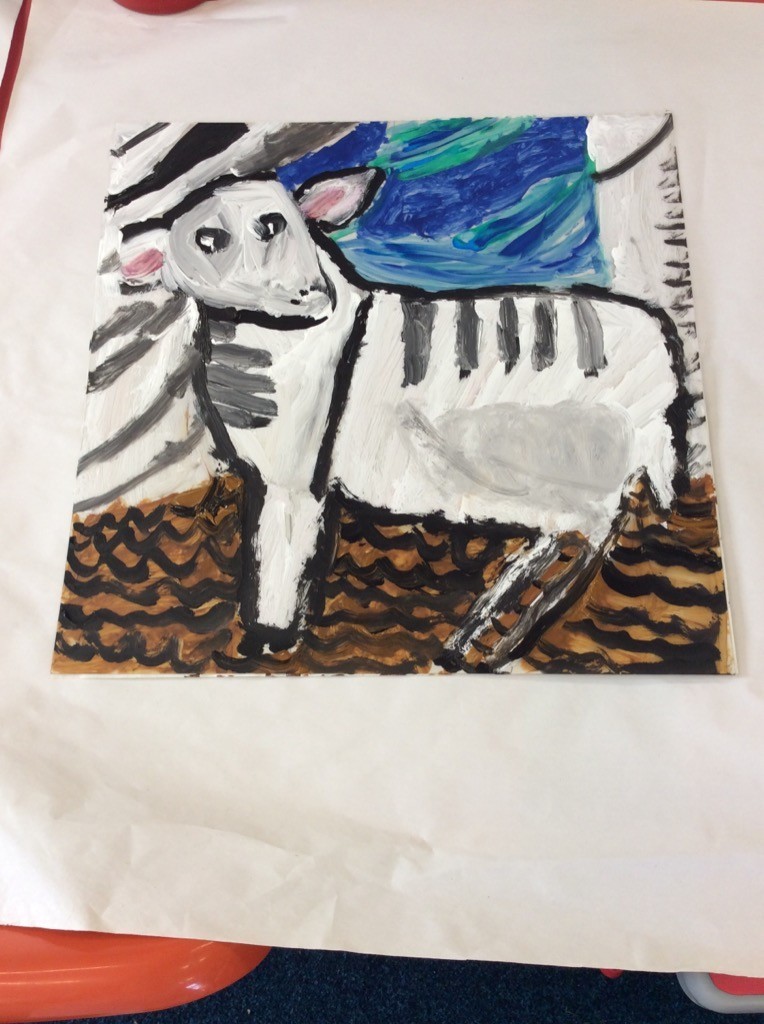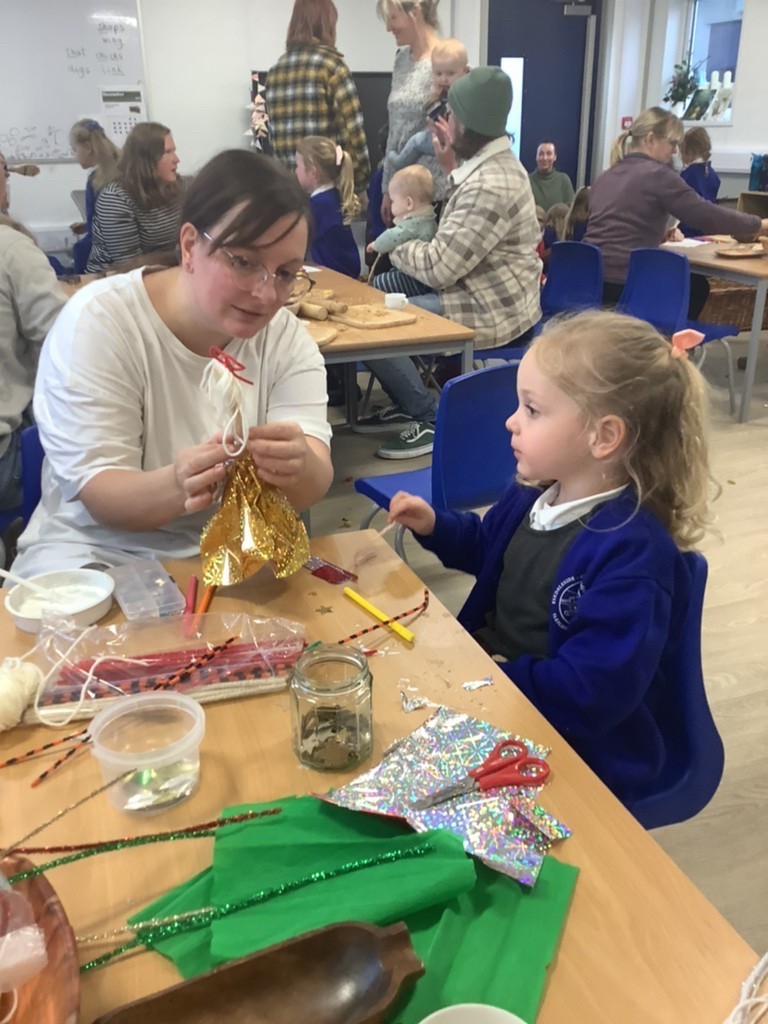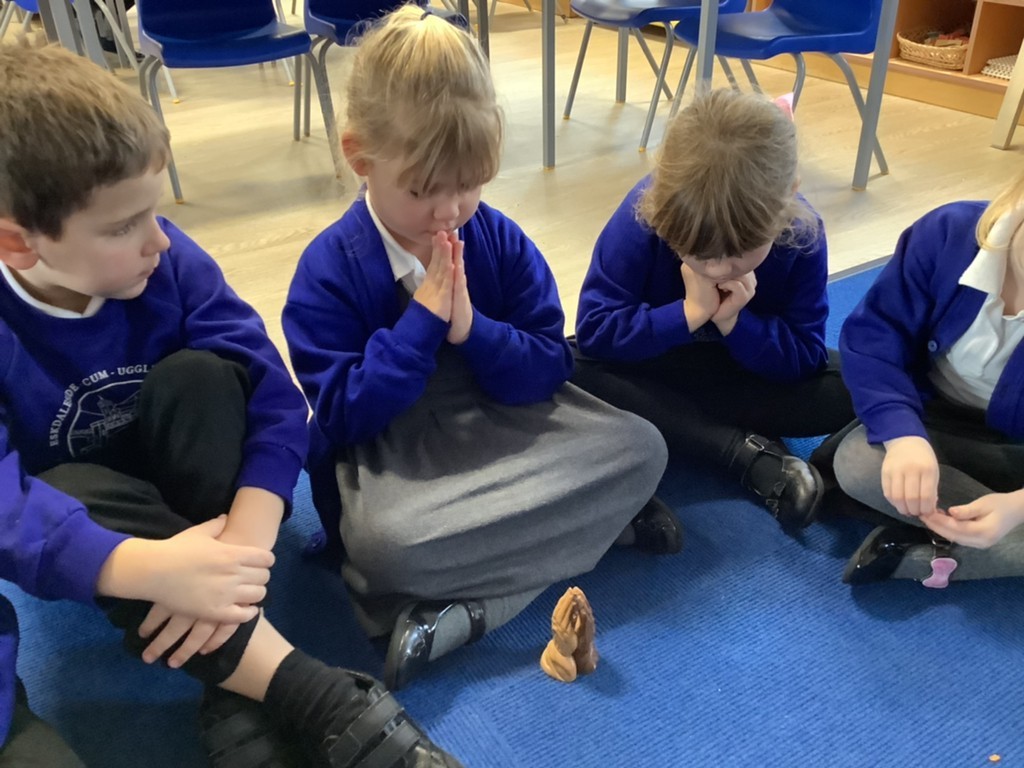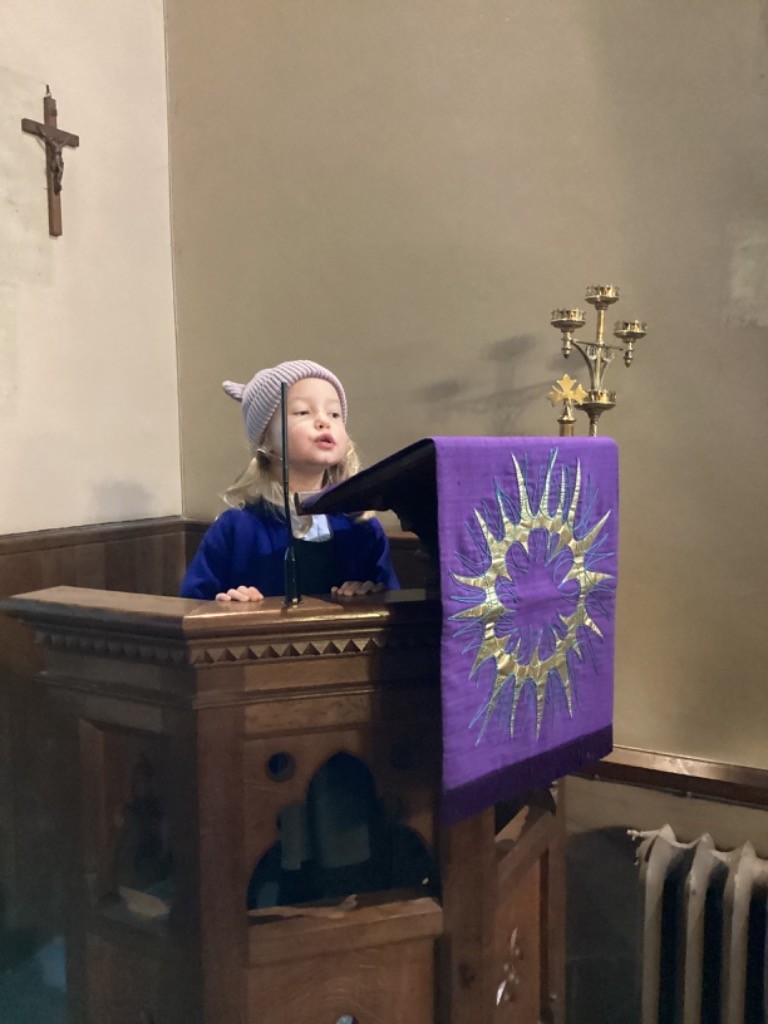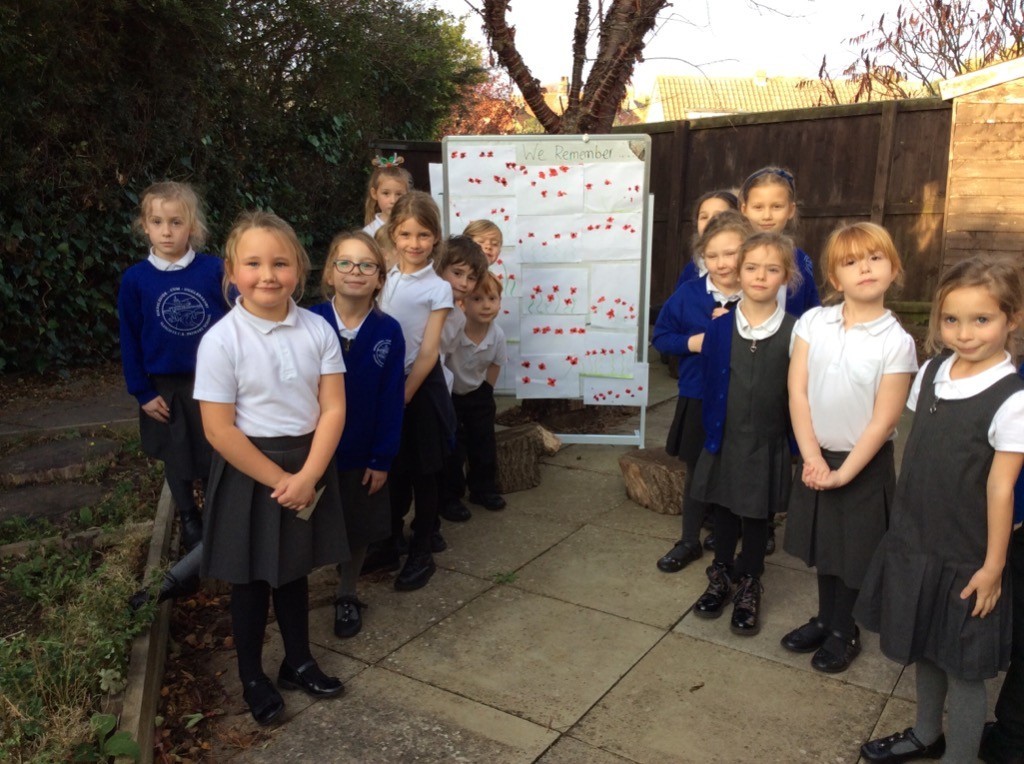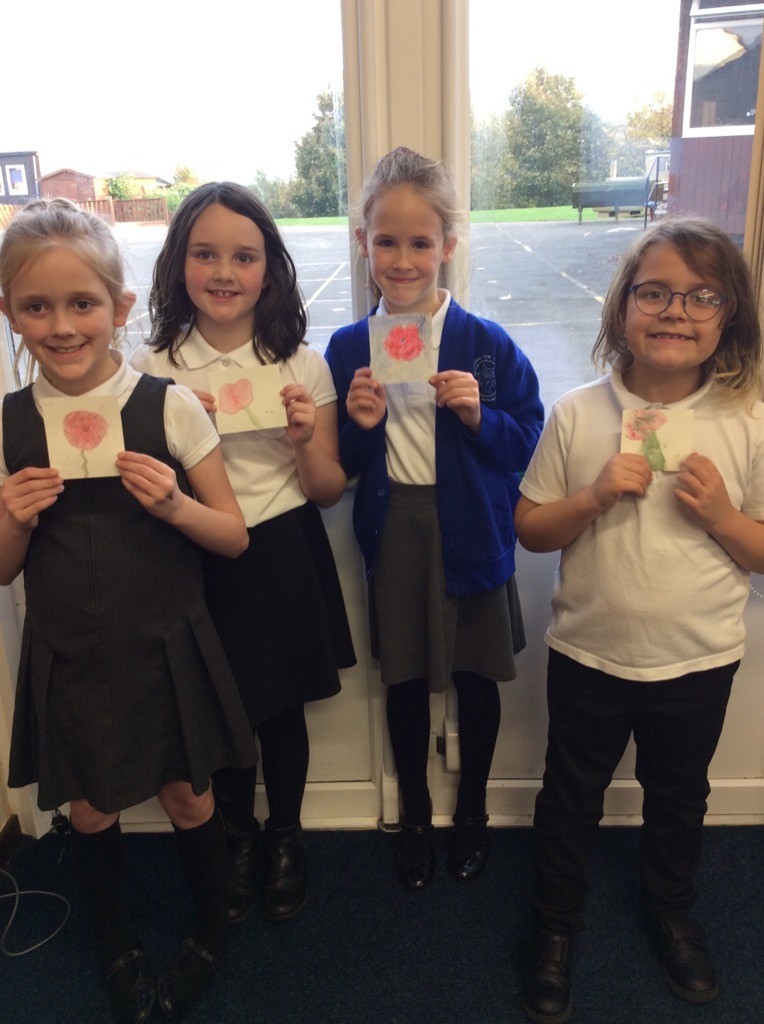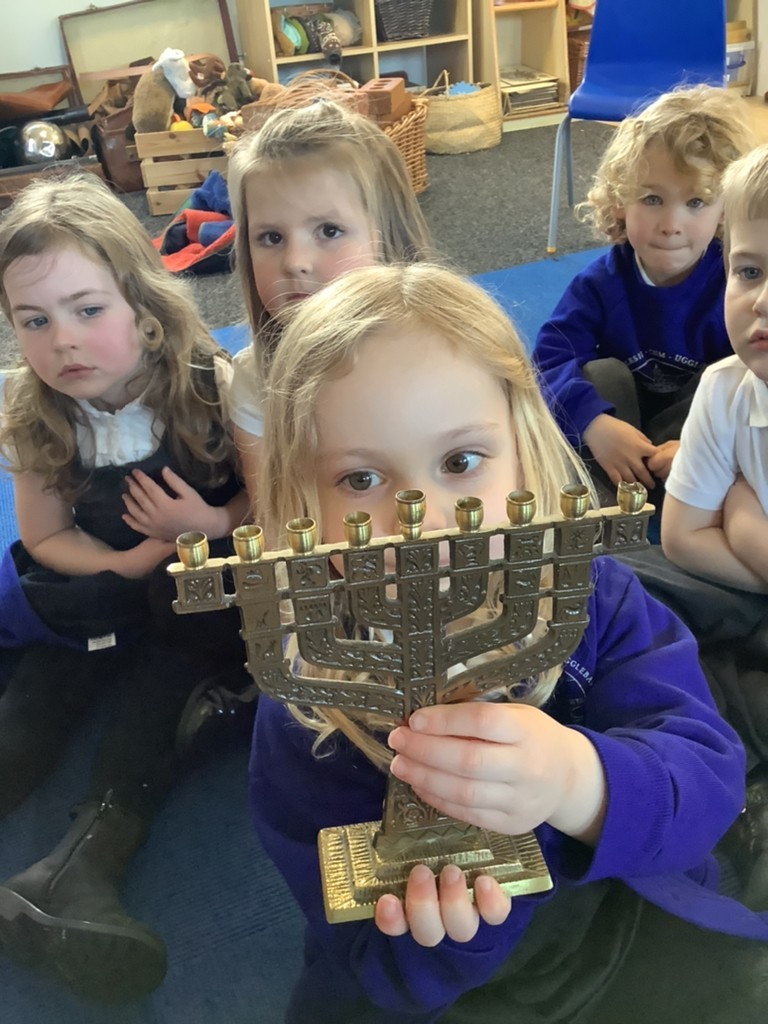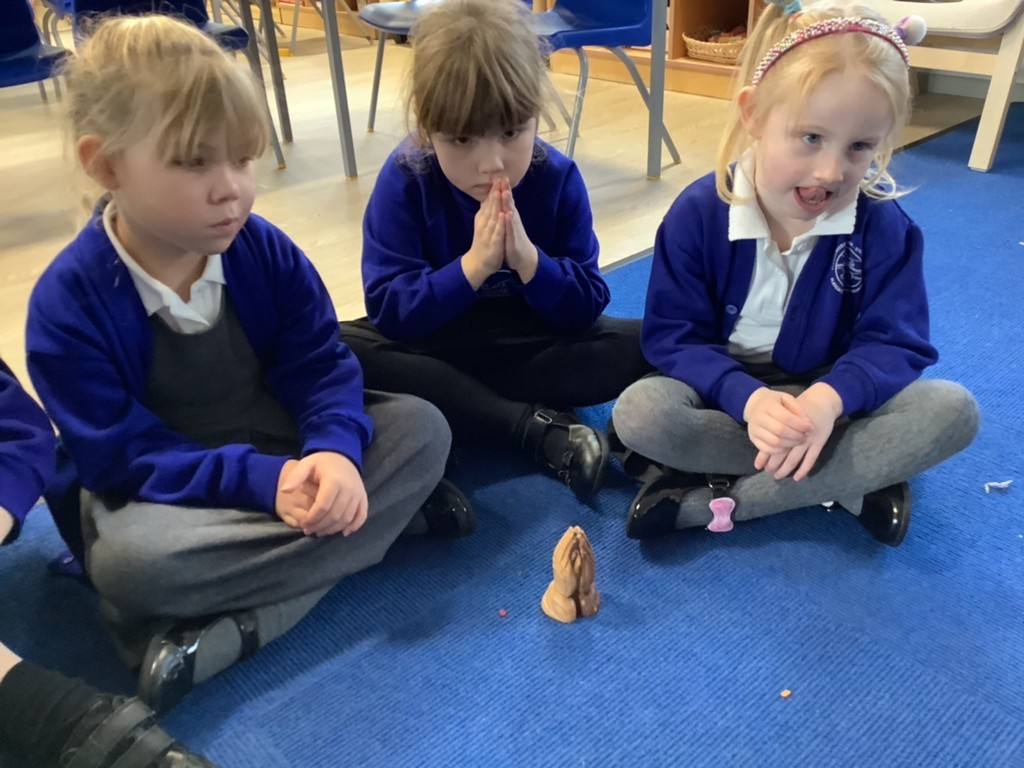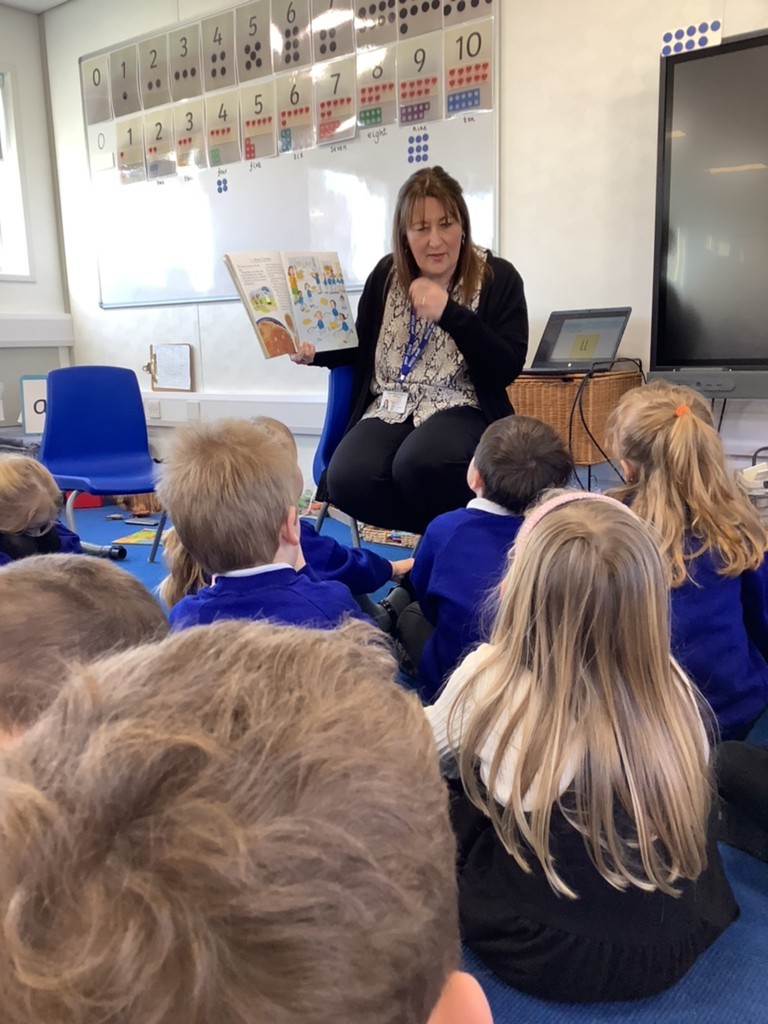The key aim of the Religious Education at Sleights is to explore big questions about life, in order to find out what people believe and what difference this makes to how they live, so that pupils can make sense of religion and worldviews, reflecting on their own ideas and ways of living.
As a Church school, we consider Religious Education as a core subject in our curriculum. 
Children of all faiths and non explore the similarities and differences of worldviews and religions, asking questions, making links and drawing comparisons from the content they learn or investigate.
At Sleights, Religious Education is taught following the North Yorkshire Agreed Syllabus (2024), which combines resources from ‘Understanding Christianity’ materials.
The curriculum leader for Religious Education is: Mrs Walker
Religious Education at Sleights involves:
|
Dedicated curriculum time to engage in range of purposeful learning experiences related religions and world views. |
|
Sequenced learning experiences, which build on prior knowledge and understanding. |
|
Developing a secure understanding of substantive knowledge related to a range of religions and traditions. |
|
Acquisition of skills and knowledge about how to know about religion and non-religion (disciplinary knowledge) |
Statement of Religious Education Intent
The children at Sleights will be provided with a curriculum offer for Religious Education designed to:
- identify crucial learning, which is placed in context and connected to other knowledge.
- support children in knowing and understanding about a range of religions and worldviews.
- allow children to express ideas and insights about the nature, significance and impact of religions and worldviews.
- support children in gaining and deploying the skills needed to engage seriously with religions and worldviews.
- gain a secure understanding of a range of religions and traditions.
- support children’s acquisition and progressive understanding of substantive and disciplinary knowledge.
- build on and develop knowledge and skills related to Religious Education in a well sequenced and structured progression across their time at Sleights.
- enable children to understand a range of religions, traditions and vocabulary, which can be used widely across the planned curriculum and beyond.
 Statement of Religious Education Implementation
Statement of Religious Education Implementation
Our approach:
The teaching sequence of Religious Education at Sleights is organised into termly or half termly units, each posing a question related to religion and religious beliefs. These units are organised in our school long term plan and are focused on one of three areas related to Religious Education. These are:
- Believing: Religious beliefs, teachings, sources; questions about meaning, purpose and truth
- Expressing: Religious and spiritual forms of expression; questions about identity and diversity
- Living: Religious practices and ways of living; questions about values and commitments
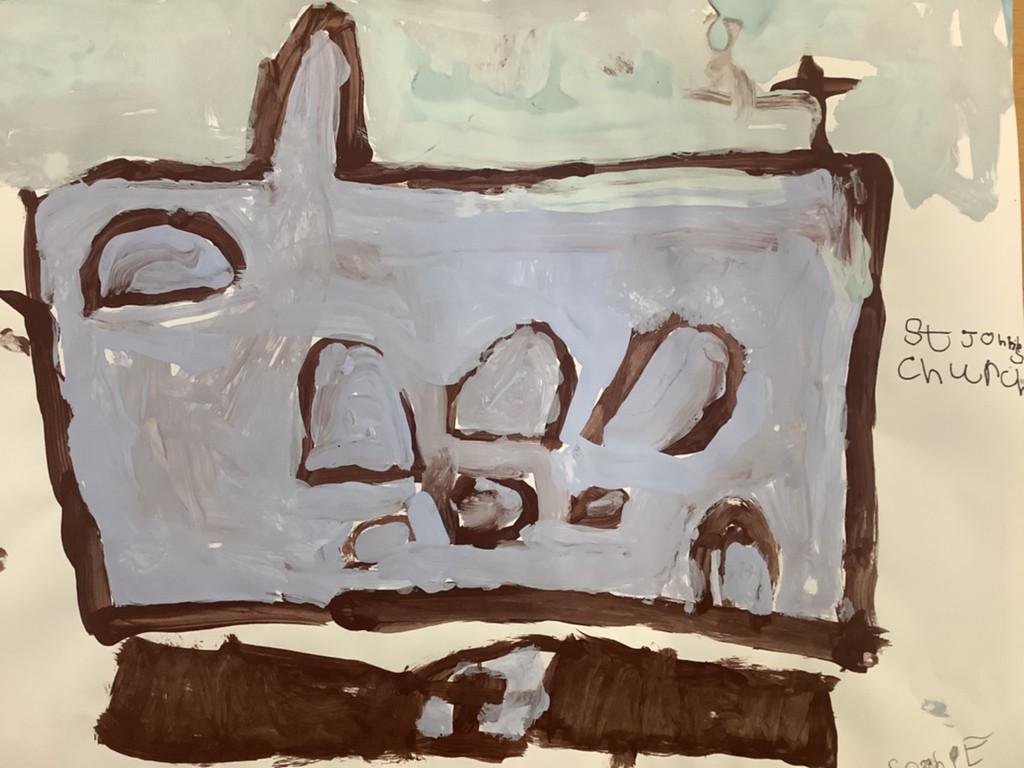
Units selected in our long term plan are sequenced and placed to support children in building an increasing knowledge and skill base of religions, traditions and world views. Throughout their time at Sleights, children learn and revisit key elements and ideas of religions, in order to build their understanding. For example, Easter is revisited throughout year groups in school, after being introduced in Reception. Knowledge and understanding about Muslims is also developed, as children revisit and build on content first introduced in Key Stage One again during their time in Key Stage Two.
What will children learn?
Religious Education at Sleights focuses on the acquisition of new knowledge and building on prior learning relating to three pillars. These pillars are interconnected and sequenced across the curriculum, so that children can build connections and links.
The three pillars of Religious Education knowledge are:
- substantive knowledge – which focuses on knowledge about various religions and non-religious traditions
- disciplinary knowledge (ways of knowing) – which helps children learn ‘how to know’ about religion and non-religion
- personal knowledge – which focuses on building an awareness of children’s own presuppositions and values about the religious and non-religious traditions.
The religions studied at Sleights are Christianity, Hinduism, Judaism and Islam. In Key Stage Two, children also learn about Humanism.
Implementation Summary:
Religious Education is implemented at Sleights through:
- timetabled, high-quality lessons, which enable children with the time and opportunities to develop their Religious Education understanding and skills over time.
- the use of a progressive long term plan, which is organised so that children can build an increasing knowledge base of Religious Education knowledge and skills.
- a termly, or half termly focus on an enquiry question, related to Religious Education, which supports and enables children to develop a secure understanding of a range of religions and views. These questions become harder to explore and answer as children move through the school.
- ongoing opportunities to acquire and apply knowledge and skills relating to Religious Education to support children build ‘ways to know’ about religion and non-religion.
Learning in Religious Education is recorded in a variety of ways. Children enjoy a range of focused tasks, practical activities and discussions, which may be recorded in class big books or individual work books.
Religious Education Long Term Plan (2025/2026)
|
|
Term 1 |
Term 2 |
Term 3 |
Term 4 |
Term 5 |
Term 6 |
|
Year R |
||||||
|
Year 1/2 |
||||||
|
Year 3/4 |
||||||
|
Year 5/6 |
||||||
|
|
Knowledge taught in Religious Education
Click the icons below to find out about the key knowledge children learn about each religion taught at Sleights. This page is regularly updated.
 |
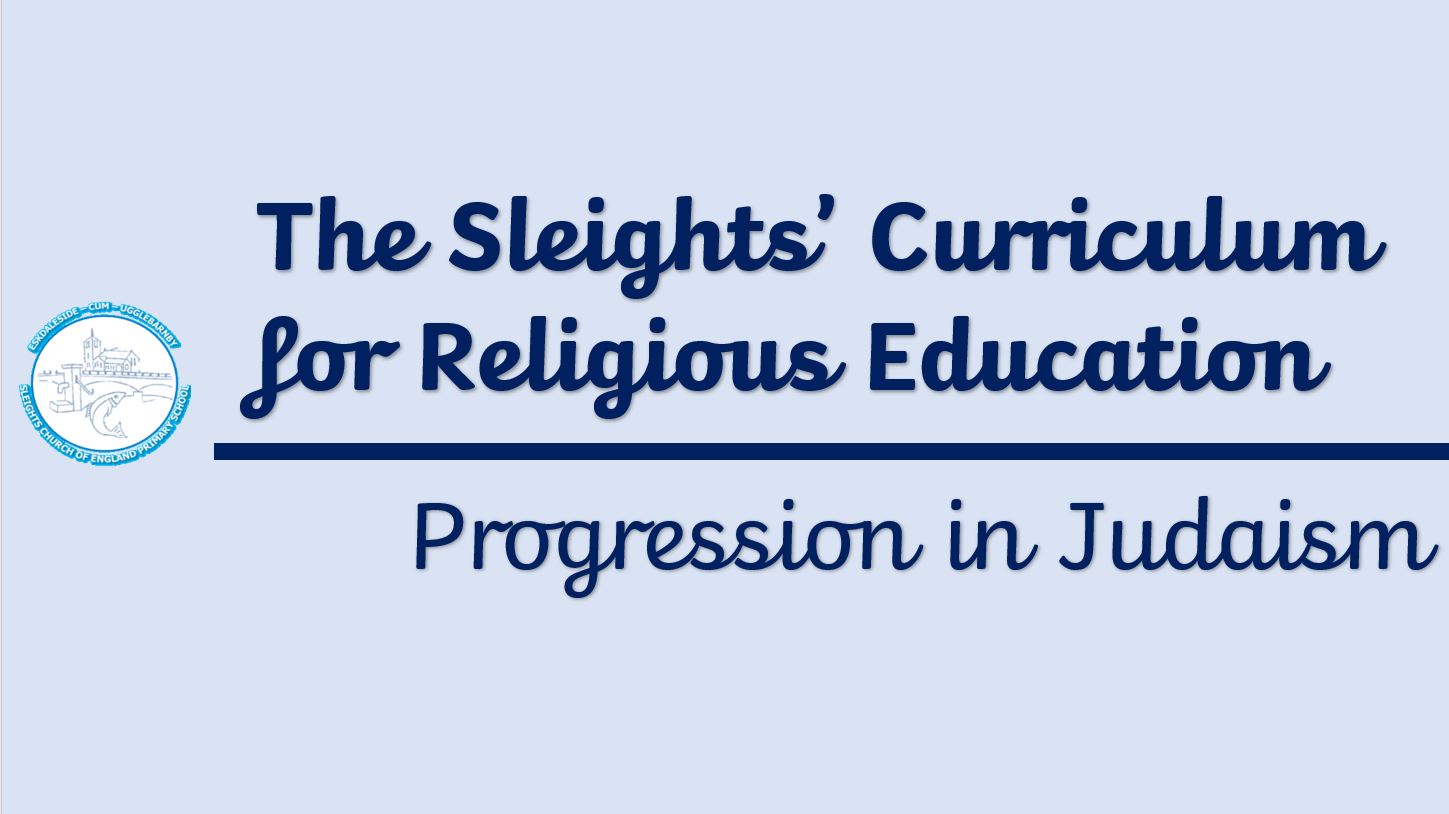 |
Religious Education in action
Key Documents
| Key Document | What is it? |
Download Here |
| RE Policy | The school’s policy for teaching and organising Religious Education at Sleights. | RE June 2024 |
| Visit and Visitors Summary | A summary of the school’s planning for visitors and visits to enhance and support the teaching of Religious Education at Sleights. |
